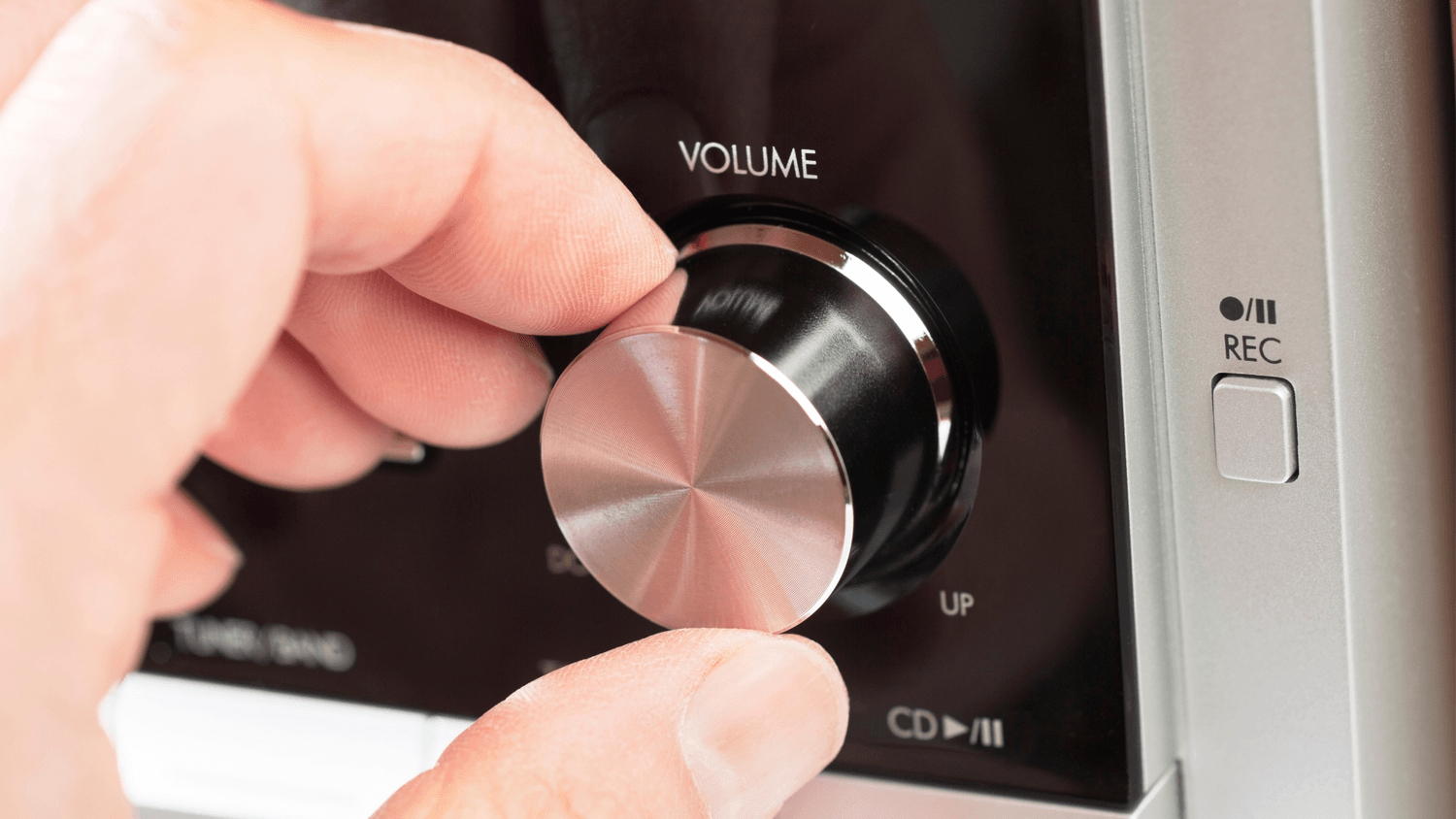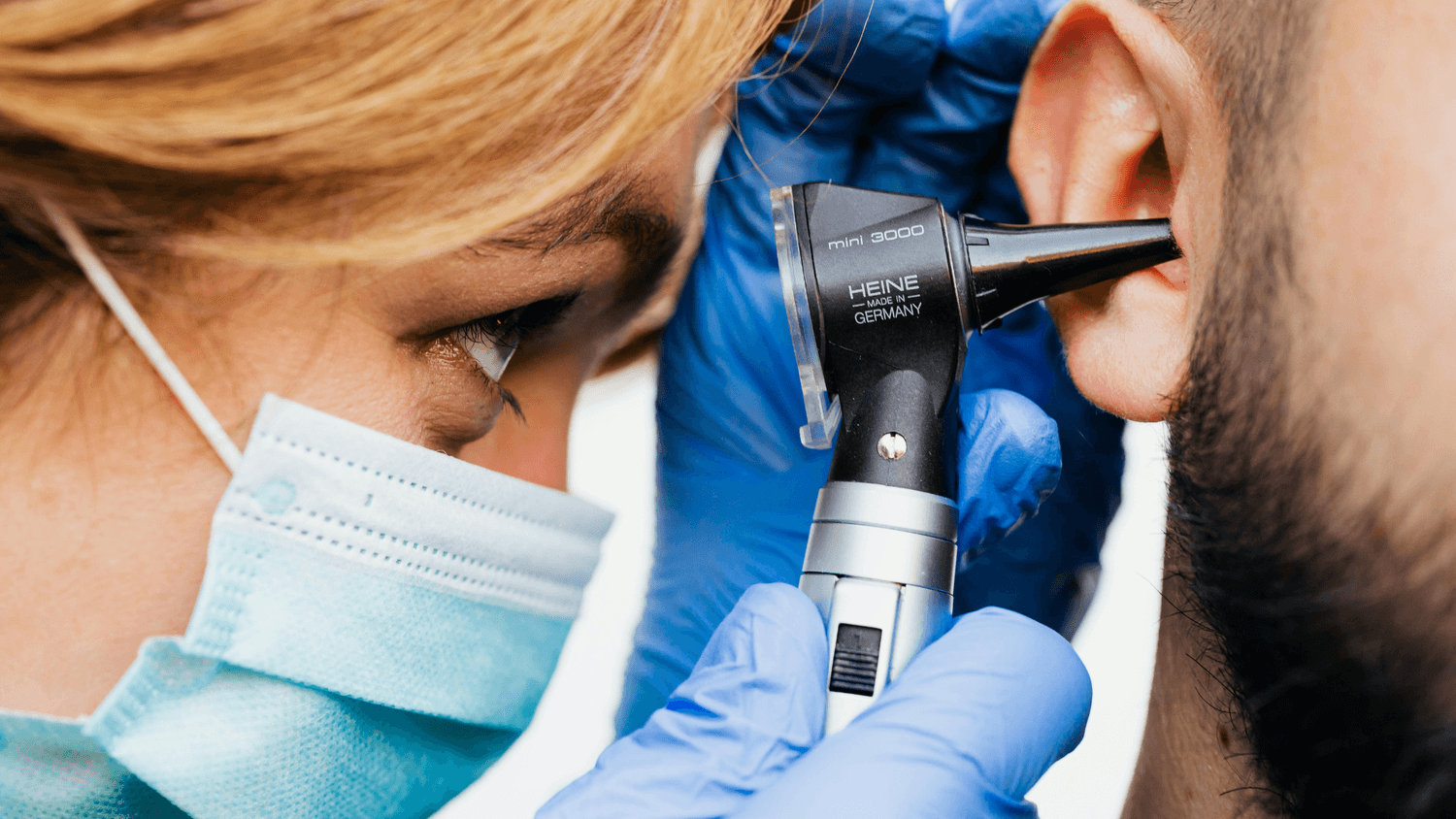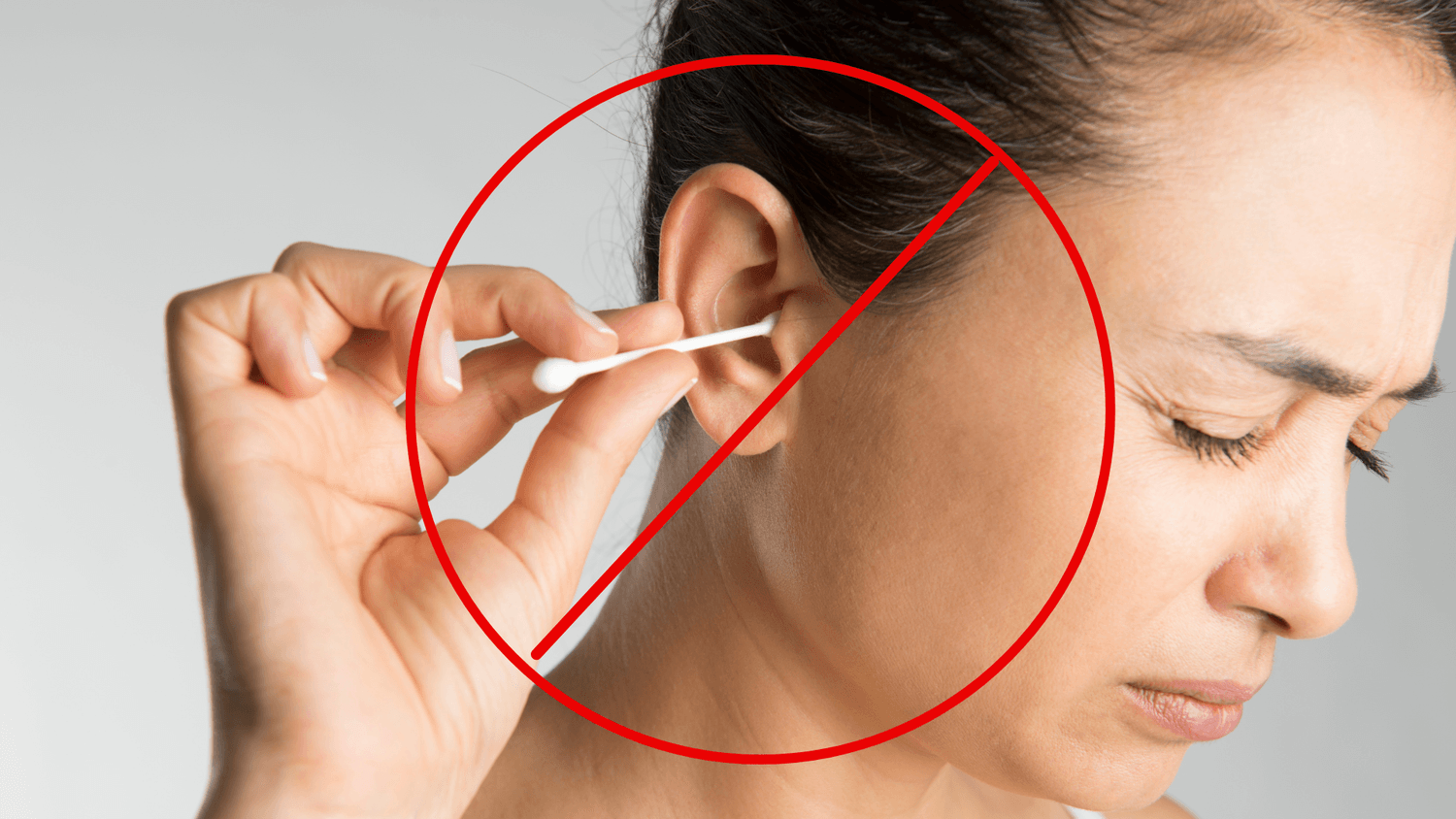How to Prevent Tinnitus from Getting Worse: Practical Tips for Better Ear Health
Tinnitus, often described as a ringing or buzzing in the ears, can disrupt daily life in significant ways. While there's no cure, there are steps you can take to keep it from getting worse. Protecting your hearing and managing triggers are key to reducing its impact. Understanding the causes and taking preventative action now can make a lasting difference for your ear health.
Understanding Tinnitus: What You Need to Know
Tinnitus can feel like an uninvited guest in your ears—persistent and hard to ignore. It's not a condition itself but a symptom that something else may be happening with your body. Knowing more about tinnitus is the first step in taking control and learning how to prevent tinnitus from getting worse.
What Is Tinnitus?
Tinnitus is the perception of sound when no external source exists. People often describe it as ringing, buzzing, hissing, or clicking in one or both ears. This sound varies in intensity, and for some, it can feel faint, while for others, it becomes overwhelmingly loud.
Interestingly, tinnitus isn't a disease. It's a symptom of other underlying issues, such as hearing loss or exposure to loud environments. While temporary tinnitus is common after a loud concert, chronic tinnitus lasts longer and can impact quality of life.
Common Causes of Tinnitus
Learning what could trigger or worsen tinnitus is key to managing it effectively. Here are some common causes:
1. Noise Exposure: Repeated exposure to loud sounds—concerts, machinery, firearms—can damage hair cells in the inner ear and lead to tinnitus.
2. Hearing Loss: Age-related hearing loss, known as presbycusis, often comes with tinnitus as a sidekick.
3. Ear Injuries or Infections: Damage to the eardrum, middle ear, or infections can disrupt normal hearing and cause tinnitus.
4. Ototoxic Medications: Certain drugs, like aspirin in high doses or specific antibiotics, can worsen or induce tinnitus.
5. Medical Conditions: Tinnitus can result from conditions like high blood pressure, head/neck injuries, or TMJ (jaw joint issues).
Understanding these triggers can help you steer clear of situations that might make tinnitus worse over time.
How Tinnitus Affects Quality of Life
Tinnitus is more than a sound—especially when it's constant. Imagine trying to fall asleep with a buzzing that won’t fade or struggling to have a conversation because you can’t focus. It often takes a toll in ways you might not expect:
- Stress and Anxiety: The persistent noise can create frustration or heighten anxiety, especially when relief feels out of reach.
- Sleep Disruption: Many sufferers struggle to fall or stay asleep due to the nagging sound, leading to exhaustion.
- Concentration Issues: Tinnitus can make it hard to focus at work, read a book, or enjoy a quiet hobby.
The impact isn’t just physical—tinnitus can lead to feelings of isolation or despair. But the good news? You can take steps to protect your hearing and reduce these effects on your life.
Practical Ways to Prevent Tinnitus from Getting Worse
Living with tinnitus can be frustrating, but there are steps you can take to stop it from escalating. By making mindful changes to your daily habits and addressing specific triggers, you can protect your hearing and improve your quality of life. Here's how you can start.
Protect Your Ears from Loud Noises
Exposure to loud sounds is one of the leading causes of worsening tinnitus. Think about situations you encounter daily—construction work, traffic, or even high-volume music through your headphones. Protecting your ears can make a world of difference.
- Use earplugs or noise-canceling headphones in noisy environments, whether at a concert or near heavy machinery.
- Turn down the volume when listening to music or watching TV. The "80/90 rule" is a good guide: Keep the volume at 80% or lower and limit exposure to 90 minutes at a time.
- Avoid prolonged exposure to loud settings. If it's unavoidable, take breaks to give your ears time to recover.

By prioritizing ear protection, you can prevent further damage to your hearing and keep tinnitus in check.
Manage Stress Effectively
Stress doesn't just weigh on your mind—it can make tinnitus seem louder and harder to ignore. Anxiety and tension often intensify the brain's perception of the ringing. Reducing stress is crucial to avoid worsening symptoms.
- Practice mindfulness or meditation to calm your thoughts and focus on the present moment. These can help reduce the emotional impact of tinnitus.
- Explore cognitive-behavioral therapy (CBT), which can teach you coping mechanisms for managing tinnitus-related stress.
- Take breaks to do activities that relax you, like yoga, journaling, or spending time in nature.
- When you actively manage stress, you create a more peaceful mental space, making tinnitus less intrusive.
Avoid Ototoxic Medications
Some medications are ototoxic, meaning they can harm your hearing and worsen tinnitus. It's a little-known fact, but being cautious about what you take is essential for ear health.
- Ask your doctor if your medications have ototoxic side effects. Drugs such as certain pain relievers (e.g., aspirin in high doses), diuretics, or antibiotics may put your hearing at risk.
- Request alternatives if you notice tinnitus worsening after starting a new prescription.
Being proactive about medication can prevent unnecessary harm to your hearing.
Maintain a Healthy Lifestyle
It's easy to underestimate the connection between overall health and tinnitus, but your daily habits can have a direct impact. Staying healthy supports your body and reduces factors that might make tinnitus worse.
- Exercise regularly to improve blood flow to all parts of your body, including your ears.
- Follow a balanced diet rich in fruits, vegetables, lean proteins, and whole grains. Some nutrients, like magnesium, may help reduce tinnitus symptoms.
- Limit smoking and alcohol. Both can affect blood circulation and potentially worsen tinnitus.
Taking care of your body sets a strong foundation for better ear health and reduces aggravating factors.
Address Underlying Medical Issues
Tinnitus is often a symptom of another condition, whether it's an ear infection or high blood pressure. Tackling the root problem can sometimes improve or even resolve tinnitus symptoms.
- Visit an audiologist or ENT specialist to check for ear issues like wax buildup, infections, or hearing loss.
- Treat high blood pressure or other cardiovascular issues, as these can directly impact the intensity of your tinnitus.
- Discuss conditions like TMJ or head/neck injuries with your doctor, as they might also contribute to your symptoms.
By focusing on underlying health issues, you can take a targeted approach to managing tinnitus and prevent it from worsening.

Habits to Support Long-Term Ear Health
Maintaining your ear health isn’t just about avoiding hearing damage; it’s about building daily habits that support your auditory system over time. Whether you're trying to prevent tinnitus from worsening or preserve your hearing altogether, taking small steps now can lead to significant benefits as you age.
Regular Hearing Checkups
How often do you get your ears evaluated? Many people overlook routine hearing checkups, yet they're one of the most effective ways to protect your ear health. Just like regular dental visits prevent cavities, hearing tests can catch potential issues early, like earwax buildup, infections, or hearing loss.
- Schedule annual hearing tests with an audiologist, especially if you're over 50 or work in noisy environments.
- Don’t wait for symptoms to seek help. Tinnitus or muffled sounds might be subtle signs of hearing damage.
Being proactive allows professionals to spot and address concerns before they escalate into long-term problems. Think of it as preventive maintenance for your ears.
Keep Personal Audio Devices at Safe Levels
We live in a world where headphones and earbuds are practically glued to our ears. But cranking up the volume can have serious consequences for your hearing over time. Let’s face it: if others can hear your playlist when you're wearing earbuds, the volume is too high.
Here’s how to use personal audio devices safely:
1. Follow the 60/60 rule: Keep the volume under 60% and limit listening to 60 minutes at a time.
2. Enable volume limit settings on your device to prevent accidental spikes in sound levels.
3. Opt for noise-canceling headphones to block external sounds. This lets you listen at lower volumes without struggling to hear.
By keeping your volume in check, you're doing your future self a favor—and helping ensure tinnitus doesn’t worsen.
Avoid Cotton Swabs and Unsafe Ear Cleaning Practices

Despite what some think, cleaning your ears with cotton swabs—or any other object—isn’t safe. In fact, this common habit can push earwax deeper into the ear canal, cause irritation, or even damage your eardrum.
So, how should you keep your ears clean?
- Let your ears clean themselves. The ear canal naturally removes wax as it moves outward.
- Use a warm washcloth to clean the outer ear after a shower.
- If you feel like you have excessive earwax, see a professional for safe removal.
Think of your ear canal as delicate machinery—it works best when left undisturbed. Skip the swabs and choose gentle alternatives to keep your ears healthy.
By addressing these habits, you’re building a solid foundation for long-term ear health while also helping to prevent conditions like tinnitus from worsening.
When to Seek Professional Help
While some tinnitus symptoms can be managed through lifestyle changes, there are times when professional care is essential. Recognizing when to seek help is crucial for preventing the condition from worsening and improving your quality of life.
Signs Tinnitus Is Worsening
Not all tinnitus experiences are the same. It’s important to monitor any changes to spot worsening symptoms. Some red flags indicate that it’s time to consult a medical professional.
- Increased Volume or Intensity: If the ringing, buzzing, or hissing seems to grow louder over time, this could signal further hearing damage or an underlying issue.
- Persistent Ear Pain: Tinnitus paired with sharp or throbbing pain in the ears may be a sign of conditions like an ear infection or injury that needs treatment.
- Impaired Hearing: Difficulty hearing conversations or increased sensitivity to sound might point to progressive hearing loss.
- Dizziness or Vertigo: Tinnitus accompanied by balance issues can hint at conditions like Ménière’s disease.
- Sudden Onset or Changes: If tinnitus appears suddenly or changes drastically without an apparent cause, act quickly.
Ignoring these warning signs can lead to more serious complications. When symptoms interfere with your daily life or worsen rapidly, it’s better to get an expert opinion.
Treatment Options for Tinnitus
Once you’ve decided to seek professional help, understanding the available treatments can ease the process. While there’s no universal fix for tinnitus, treatments aim to reduce the symptoms and improve coping mechanisms. Here’s a quick overview of common options your healthcare provider might suggest:

- Hearing Aids: Designed for those with hearing loss, hearing aids can reduce the perception of tinnitus by amplifying external sounds. Some even feature built-in masking sounds tailored to your needs.
- Sound Therapy: This treatment uses white noise machines, specialized apps, or environmental sounds to blend with or mask the tinnitus, making it less noticeable.
- Cognitive-Behavioral Therapy (CBT): CBT helps address the emotional and psychological impact of tinnitus, teaching coping tools that can lower stress and promote relaxation.
- Tinnitus Retraining Therapy (TRT): TRT combines counseling with sound therapy to retrain your brain’s response to tinnitus, helping you focus less on the noise.
- Medications: While no drug cures tinnitus, some medications can manage associated symptoms like anxiety, insomnia, or depression.
A customized treatment plan can make a world of difference. Consulting an audiologist or a specialist can help you choose the right mix of therapies for your specific situation.
Myths and Misconceptions About Tinnitus
When discussing tinnitus, misunderstandings often get in the way of finding effective ways to manage it. These misconceptions can prevent people from taking proper steps to protect their hearing or improve their quality of life. Let’s clear up some of the most common myths about tinnitus.
Tinnitus Is an Untreatable Condition
One of the biggest myths is that tinnitus is a hopeless condition with no way to ease its effects. While it's true there isn’t a universal cure, that doesn’t mean you’re out of options. Many management strategies can help reduce the impact of tinnitus on your day-to-day life.
- Sound therapy uses soothing background sounds to mask tinnitus, like white noise or gentle music.
- Hearing aids can assist those with hearing loss by amplifying external sounds, which may naturally distract from the ringing.
- Techniques such as cognitive-behavioral therapy (CBT) teach coping methods to handle the emotional stress tinnitus often causes.
The key takeaway? You don’t need to suffer in silence. With the right tools, tinnitus can become more manageable, improving both mental and physical well-being.
Only Older Adults Get Tinnitus
Another common misconception is that tinnitus exclusively affects older adults. While age-related hearing loss is a common cause, tinnitus can and does impact people of all ages, including teens and young adults.
Younger individuals might develop tinnitus due to:
- Extended use of headphones at high volumes.
- Exposure to loud concerts or noisy environments like construction sites.
- Certain health conditions or medical treatments.
Hearing damage isn’t reserved for those over 50. Protecting your ears from an early age is one of the best ways to prevent tinnitus from getting worse, no matter how old you are. If you're at a rock concert or blasting music through earbuds, you're not immune—small steps like turning down the volume can make a big difference later in life.
Holding onto these myths only makes it harder to take charge of your hearing health. By staying informed, you'll be in a stronger position to protect your ears and manage tinnitus effectively.
Conclusion
Protecting your hearing is essential to keep tinnitus from getting worse. Simple actions, like limiting loud noise exposure, managing stress, and maintaining a healthy lifestyle, can make a noticeable difference over time. Addressing underlying medical issues and avoiding ototoxic medications adds another layer of protection.
Your future ear health depends on the choices you make today. Start implementing these strategies and consult a specialist if symptoms escalate. Don’t wait—take control of your tinnitus and preserve your quality of life.





















